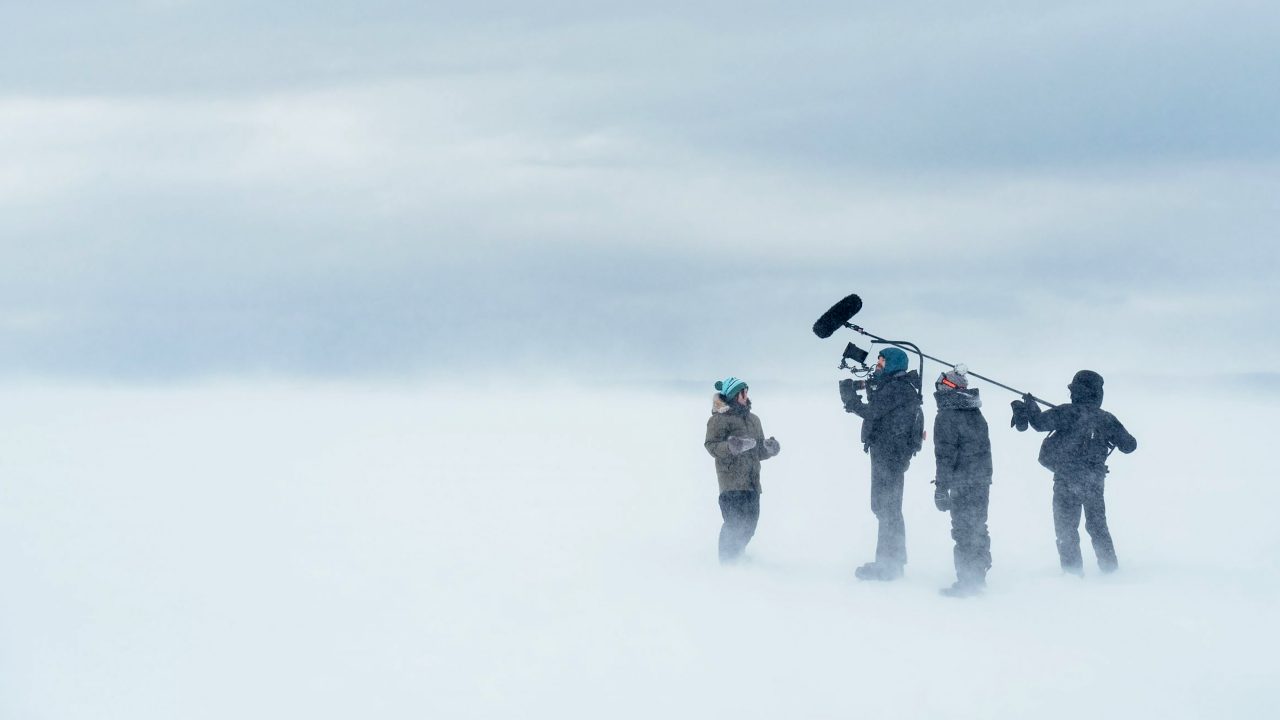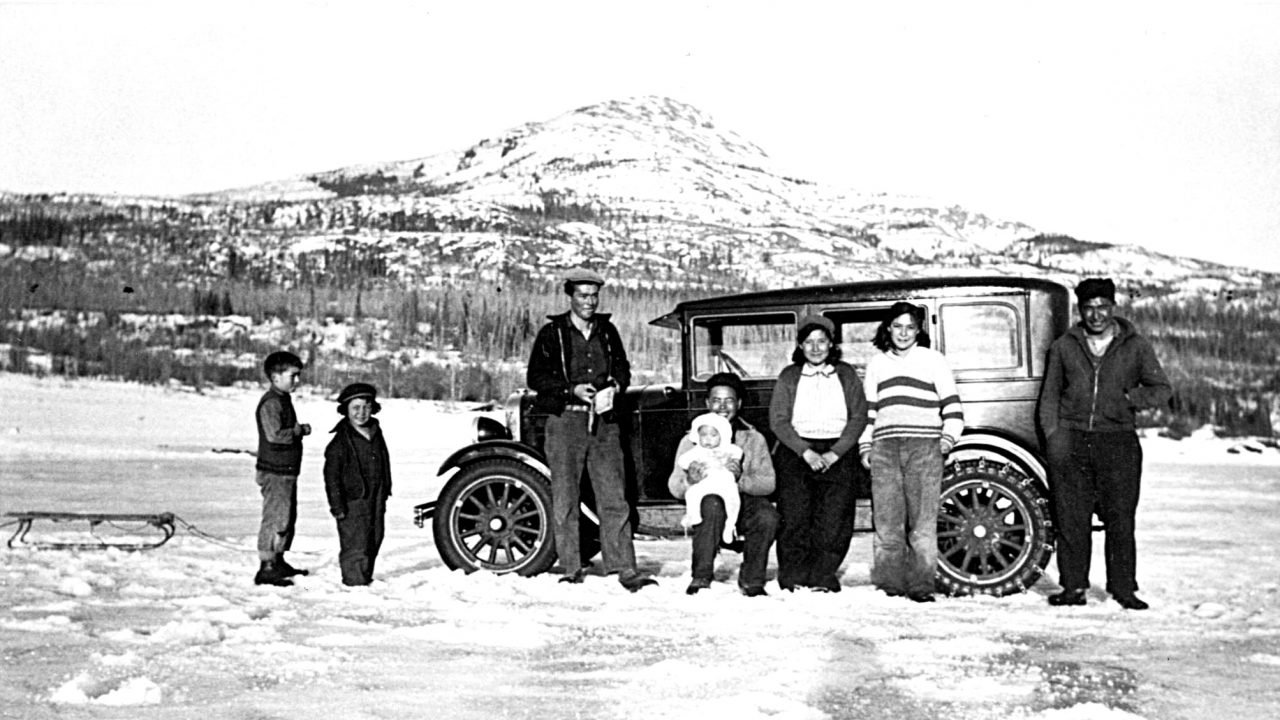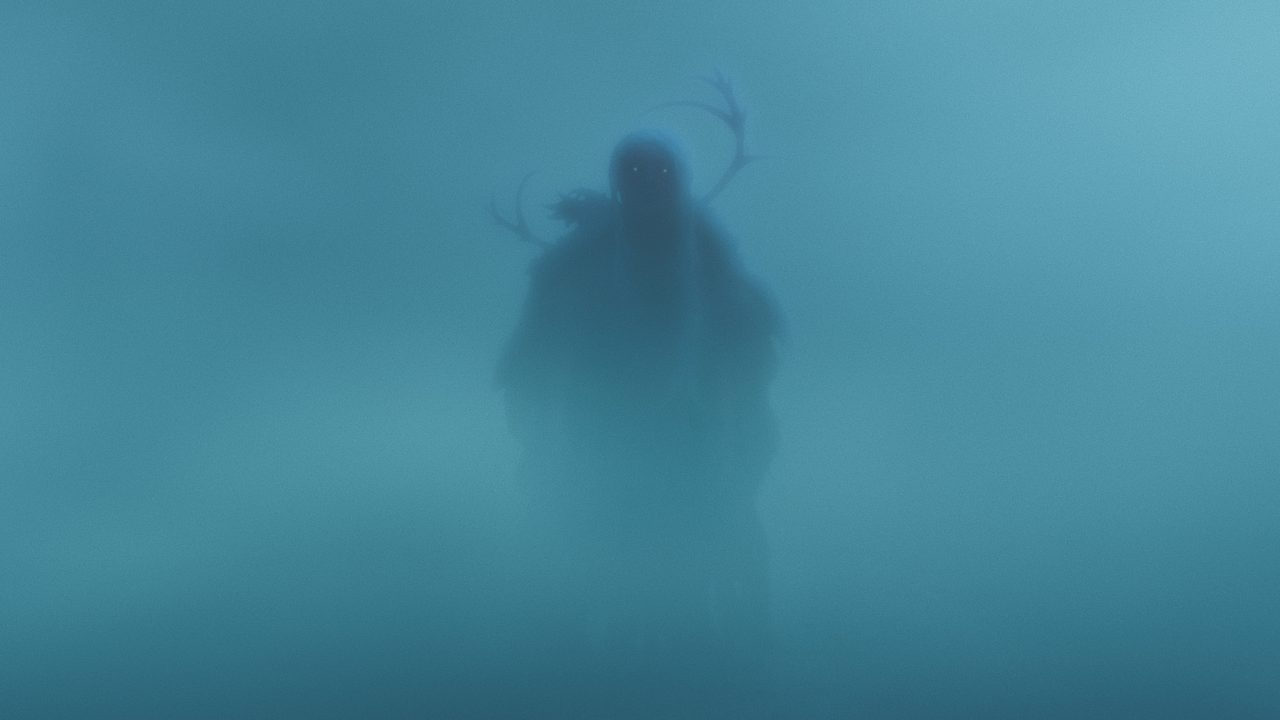
A Trio of Hard-hitting Films That Take a Look at Climate Change | Curator’s Perspective
A Trio of Hard-hitting Films That Take a Look at Climate Change | Curator’s Perspective
Earth Day has been celebrated on April 22 every year since 1970. This important occasion, which will be marked this year in 193 countries with more than a billion people taking part,[1] inevitably reminds us of the environmental issue that’s probably of the greatest concern: global warming. At a time of increasingly polarized and politicized debate over whether the phenomenon even exists, with news media reporting that the US government has begun deleting climate data, there’s consensus on climate change in the scientific community and extreme weather events are increasing around the world—what’s the current state of our thinking on this issue?
Some of the NFB’s films on the topic offer interesting and even surprising answers to that question. This blog post looks at three of them: Metamorphosis (2018) by Nova Ami and Velcrow Ripper, The Magnitude of All Things (2020) by Jennifer Abbott and Losing Blue (2023) by Leanne Allison.
A very real phenomenon
One thing is certain: for the filmmakers behind these three documentaries, climate change is no longer just a troubling possibility and even less something that’s open to political debate. It’s all too real, and the phenomena it creates are escalating rapidly.
Ami and Ripper’s doc informs us that the wildfire season in California is getting longer and the fires more intense every year. We also learn in Metamorphosis that 80% of the coral reefs in the Caribbean have disappeared over the past 50 years. Abbott’s film notes that in Nunatsiavut, one of the places in the world where temperatures are warming the fastest, the ice cover is thinning and the landscape is changing dramatically. In Kiribati, meanwhile, rising ocean levels are an everyday reality for inhabitants; in fact, scientists have predicted that the islands of this Central Pacific nation will be entirely submerged by 2100 because of rising sea levels. The Magnitude of All Things mentions how the survival of the Great Barrier Reef, off the coast of Queensland, Australia, is threatened by coral bleaching. As for Losing Blue, it shows how melting glaciers in the Canadian Rockies are changing the magnificent blue colour of surrounding lakes, and that it may disappear completely before long.
Is resignation inevitable?
It’s interesting to note one conclusion that’s common to these three docs: resignation in the face of our inability to stem global warming. We’re facing a crisis whose scope is unprecedented in the entire history of humanity, a planet-wide phenomenon that ignores borders, spares no one and is impacting every species. It’s already too late to reverse its course, say many protagonists in all three films; the world as we know it is disappearing. In the words of the narrator of Losing Blue: “We’ll still sit beside the lakes. Admire them. And in the end, we’ll forget that the lakes were ever blue.[2]”
We thought nature was invincible, eternal, and that humanity would never be threatened. The changes we now face remind us that nature is both powerful and fragile, and that human beings are mortal. Our ability to adapt to those changes will represent a profound existential challenge for us in the future. The world’s transformation and the pace of that transformation, those same protagonists say, will have a dramatic effect on our collective psyche.
Losing Blue, Leanne Allison, provided by the National Film Board of Canada
Anxiety, hope and truth
How do we react to this unavoidable fate? With feelings of sadness anxiety, fear and even depression, say many of the people quoted in Metamorphosis and The Magnitude of All Things. We now have a name for these feelings: eco-anxiety. But that anxiety is now paralyzing us, the protagonists say. We’ve slipped into a form of physical and psychological numbness, a collective denial that’s left us paralyzed, feeling a sense of non-involvement and detachment.
Clare Farrell and Roger Hallam, the co-founders of the U.K.-based ecological movement Extinction Rebellion, who appear in The Magnitude of All Things, feel that most people don’t want to hear about what’s really happening. We hide our sewage, garbage and waste. We don’t want to admit that our lifestyles are causing a catastrophe, they say. When someone criticizes him for his “unrelentingly bleak and negative” message, as a TV host does in one clip, Hallam replies: “It’s not a message [. . .] When you go to the doctor, and he tells you you have cancer, that’s not a message, it’s the science.”[3] The activist rejects all forms of hope, because hope is preventing us from taking action. We tell ourselves things aren’t so bad and, at any rate, eventually someone somewhere will take charge of things. But the truth is more important than hope. Greta Thunberg, the young Swedish climate activist, agrees: “When I talk to people [. . .] they always say we need to have hope [. . .] and we can’t just tell these negative stories; we need to tell the positive stories. No. We need to tell the truth. We can’t hide things just because it’s not hopeful.”[4]
The Magnitude of All Things, Jennifer Abbott, provided by the National Film Board of Canada
Eco-grief
We need to therefore confront this cruel truth. But how? We must begin by grieving for the things we’re losing. Nikki Silvestri, founder and CEO of Soil and Shadow, interviewed in the documentary Metamorphosis, puts it this way: “Knowing how to integrate grief and face it head on, not ignoring the things that are constantly being lost, being able to turn that into praise of the things that we love, so that we know how to protect and serve them, is what we need to do now.”[5]
Filmmaker Jennifer Abbott also addresses this question of eco-grief in The Magnitude of All Things, drawing a parallel between the grief of losing a loved one (her sister died of cancer) and grief we feel watching our planet in decline, witnessing parts of nature disappear because of climate change. The protagonists of her film also express this grief, each in their own way: Sarah Baike, an Elder and artist from Nunatsiavut, mourns the loss of her people’s land; Anote Tong, the former president of the Republic of Kiribati, laments the gradual vanishing of his country’s islands, engulfed by rising sea levels; David Bowman, a professor of pyrogeography and fire science, weeps for trees that are thousands of years old and gradually becoming extinct.
Likewise, Losing Blue director Leanne Allison, in poetic voiceover accompanied by breathtakingly beautiful images, tells us about the gradual decline of the supernaturally blue tint of Canada’s Rocky Mountain lakes.
Metamorphosis, Nova Ami & Velcrow Ripper, provided by the National Film Board of Canada
Hope for change
What next, then? Do we just give up? “It’s too late, anyway,” “it’s all over,” some may say. The Dean of the School of Arctic and Subarctic Studies of the Labrador Institute at Memorial University, also profiled in The Magnitude of All Things, thinks the opposite: “We can’t do that. Because it’s not over. But it is going to be a period of grief without end. So somehow we have to make peace with the grief, but not just give up.”[6] Later, she adds: “There has to be this deeply ethical shift [. . .] that changes our ability to talk about a different type of grief that’s not a human-to-human grief, but a human-to-more-than-human grief. Where we open up; we let everyone in.”[7] This idea of tackling the problem from a more global angle, considering humanity and nature as a whole, and accepting that Earth’s destruction also means our own destruction, is a core belief shared by many of the people in Abbott’s film. They also envision a solution that implies a profound transformation.
As emphasized at the end of Metamorphosis by University of Barcelona researcher Filka Sekulova, echoing the thoughts of psychiatrist and writer Robert Jay Lifton, and Nikki Silvestri, mentioned earlier: “This crisis is an opportunity for transformation. Transformation that is beyond linear. Something going from one state to another that you couldn’t have anticipated” (Sekulova). “A swerve. Changes that are unclear and unexpected, large-scale and significant” (Lifton). “We actually have a choice about what that metamorphosis looks like” (Silvestri).[8]
The question remains: Will we succeed in transforming the world we live in?
I urge you to explore the three documentaries discussed in this post. You can also view other films on the environment and ecology by browsing the Our Planet in Focus channel.
[1]. Statistics taken from the Earth Day Canada website, earthday.ca.
[2]. Quote from Losing Blue (2023, dir. Leanne Allison), a production of the National Film Board of Canada.
[3]. Quote from The Magnitude of All Things (2020, dir. Jennifer Abbott), a production of Cedar Island Films, Flying Eye Productions, Magnitude Productions Inc. and the National Film Board of Canada.
[4]. Ibid.
[5]. Quote from Metamorphosis (2018, dir. Nova Ami and Velcrow Ripper), a production of Clique Pictures (Toronto), Transparent Film (Gibsons) and the National Film Board of Canada.
[6]. Quote from The Magnitude of All Things, op. cit.
[7]. Ibid.
[8]. Quote from Metamorphosis, op. cit.



